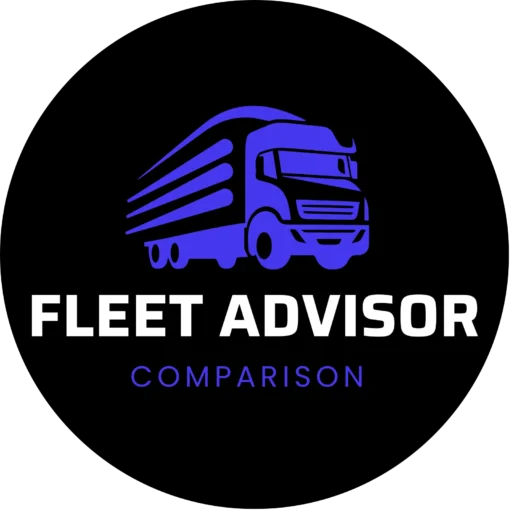Content
The Rise of Generative AI in Fleet Management
Modern fleet operations generate vast amounts of data daily, encompassing vehicle performance metrics, driver behaviors, and environmental conditions.
Traditional data analysis methods often fall short in processing this information promptly and accurately. AI addresses this challenge by swiftly analyzing complex datasets, identifying patterns, and providing actionable insights. This proactive approach enables fleet managers to anticipate issues before they escalate, ensuring vehicles remain operational and safe.
A significant evolution in AI-driven fleet management is the advent of Generative AI (GenAI). According to a recent Forbes Technology Council article, GenAI represents a shift from simply identifying patterns to generating actionable, contextual insights in real-time. GenAI shortens the time between data collection and decision-making, streamlining fleet operations through features such as:
• Direct AI Communication with Drivers: AI can interact with drivers to provide instant coaching on driving behaviors, improving efficiency and safety.
• Smarter Traffic and Routing: AI-powered route optimization can adjust in real-time, enhancing fleet movement and reducing delays.
• Predicting Demand & Managing Fleet Size: AI forecasts demand patterns to optimize vehicle allocation and de-fleeting strategies.
• AI-Powered Dash Cams for Road Safety: Dual-camera AI systems monitor driver focus, reducing distracted driving risks.
Traditional data analysis methods often fall short in processing this information promptly and accurately. AI addresses this challenge by swiftly analyzing complex datasets, identifying patterns, and providing actionable insights. This proactive approach enables fleet managers to anticipate issues before they escalate, ensuring vehicles remain operational and safe.
A significant evolution in AI-driven fleet management is the advent of Generative AI (GenAI). According to a recent Forbes Technology Council article, GenAI represents a shift from simply identifying patterns to generating actionable, contextual insights in real-time. GenAI shortens the time between data collection and decision-making, streamlining fleet operations through features such as:
• Direct AI Communication with Drivers: AI can interact with drivers to provide instant coaching on driving behaviors, improving efficiency and safety.
• Smarter Traffic and Routing: AI-powered route optimization can adjust in real-time, enhancing fleet movement and reducing delays.
• Predicting Demand & Managing Fleet Size: AI forecasts demand patterns to optimize vehicle allocation and de-fleeting strategies.
• AI-Powered Dash Cams for Road Safety: Dual-camera AI systems monitor driver focus, reducing distracted driving risks.
Top AI Frontrunners in Fleet Management
1. Pitstop Connect
The most feature-rich AI-driven fleet management solution, Pitstop excels in predictive maintenance, fault code management, real-time data analysis, and AI-powered preventative maintenance scheduling. It integrates seamlessly with existing fleet management systems, making it the most advanced and well-rounded option available.
Find the best solution for your fleet
2. Geotab
A strong competitor with robust telematics capabilities, real-time GPS tracking, and compliance features. Geotab integrates seamlessly with Pitstop, enhancing predictive maintenance capabilities. However, it lacks Pitstop's advanced predictive maintenance and AI-driven automation.
3. Samsara
The most feature-rich AI-driven fleet management solution, Pitstop excels in predictive maintenance, fault code management, real-time data analysis, and AI-powered preventative maintenance scheduling. It integrates seamlessly with existing fleet management systems, making it the most advanced and well-rounded option available.
Samsara integrates with Pitstop, allowing for improved real-time diagnostics and fleet performance insights.
Samsara integrates with Pitstop, allowing for improved real-time diagnostics and fleet performance insights.
4. Fleetio
Offers excellent fleet maintenance tracking and automation features. While it includes comprehensive vehicle inspections and reporting, it lacks AI-powered predictive maintenance at the same level as Pitstop.
Which fleet system fits you best?
5. Whip Around
Specializes in digital vehicle inspections, compliance tracking, and document management. However, it does not offer advanced predictive analytics or real-time AI-powered maintenance features.
6. Odoo
A highly customizable ERP solution that includes fleet management features, but it requires extensive configuration and lacks real-time AI-driven optimization out of the box.
7. Verizon Connect
Provides tracking and logistics optimization, focusing more on fleet tracking than predictive maintenance. It lacks AI-driven real-time vehicle health monitoring.
Take Your Fleet to the Next Level with AI
Challenges of AI in Fleet Management
While AI-powered fleet management solutions continue to evolve, several challenges persist:
Chip Shortages: AI relies on high-performance GPUs, which are in short supply. This limits the scalability of GenAI-powered solutions.
Data Security: Ensuring secure AI models and implementing robust data governance practices are essential to prevent misuse.
Ethical Considerations: AI-generated insights must be explainable and unbiased, requiring ongoing monitoring and refinement.
Despite these challenges, the AI community is actively working on improving chip efficiency, strengthening cybersecurity measures, and enhancing AI transparency to ensure sustainable AI adoption in fleet management.
Chip Shortages: AI relies on high-performance GPUs, which are in short supply. This limits the scalability of GenAI-powered solutions.
Data Security: Ensuring secure AI models and implementing robust data governance practices are essential to prevent misuse.
Ethical Considerations: AI-generated insights must be explainable and unbiased, requiring ongoing monitoring and refinement.
Despite these challenges, the AI community is actively working on improving chip efficiency, strengthening cybersecurity measures, and enhancing AI transparency to ensure sustainable AI adoption in fleet management.
Conclusion
AI is redefining logistics and fleet management, helping companies operate more efficiently while reducing costs and improving safety. The future of fleet optimization lies in AI-powered solutions that anticipate, automate, and optimize every aspect of operations.
Tired of system guesswork?
Share
Share:
